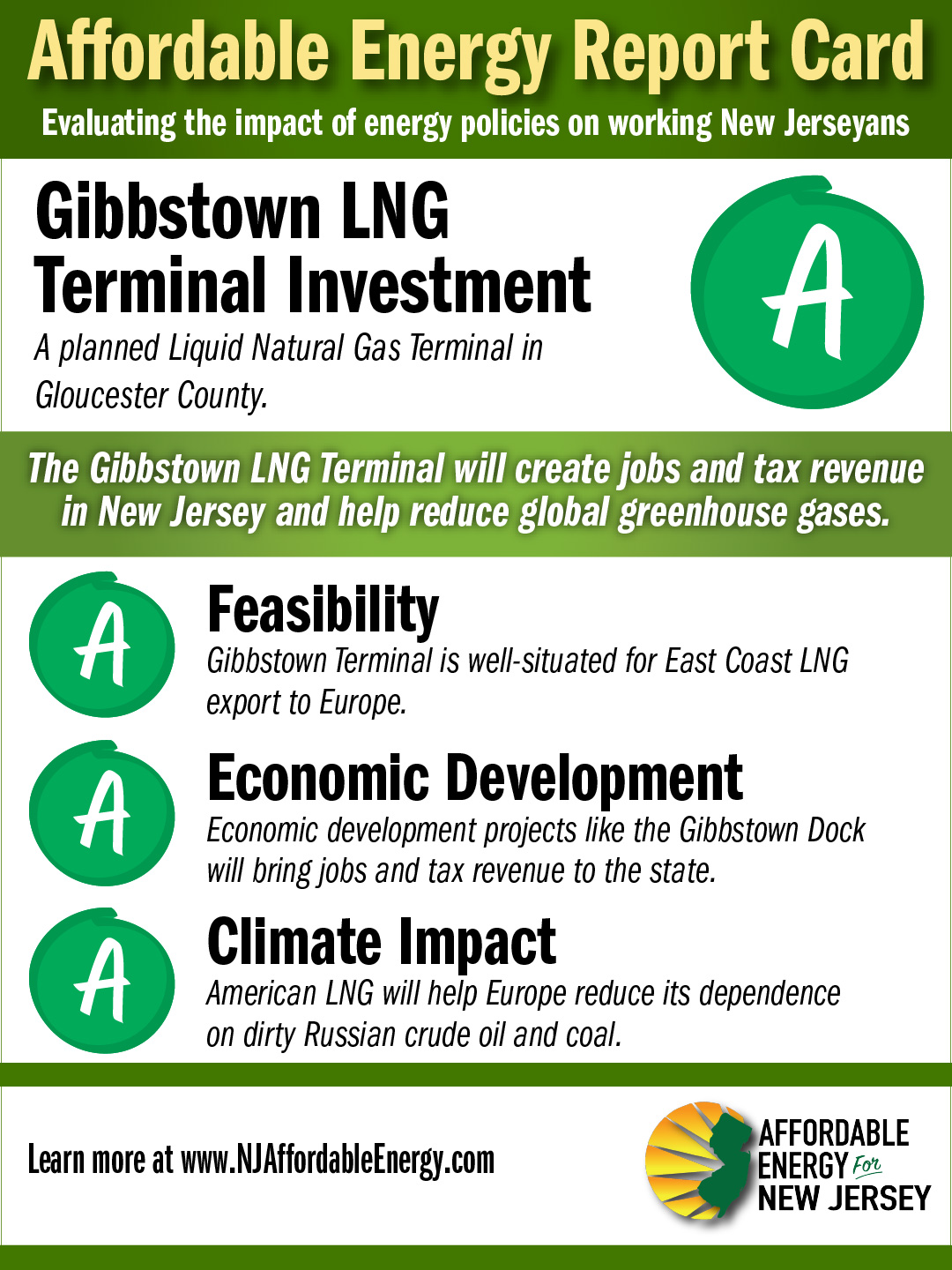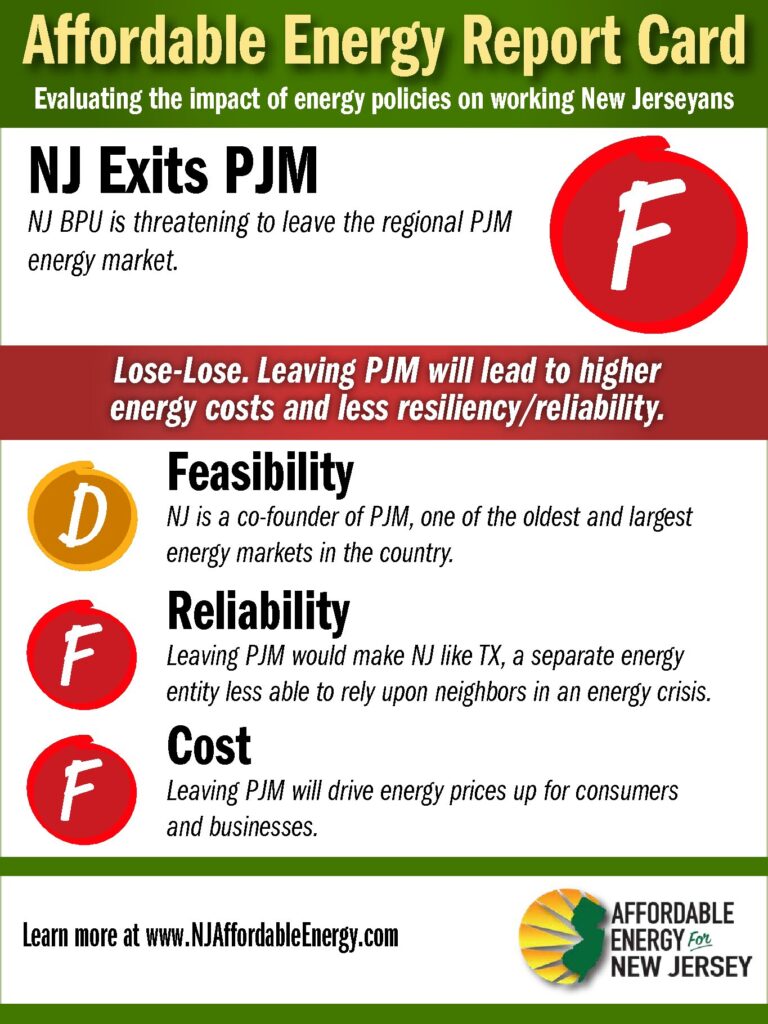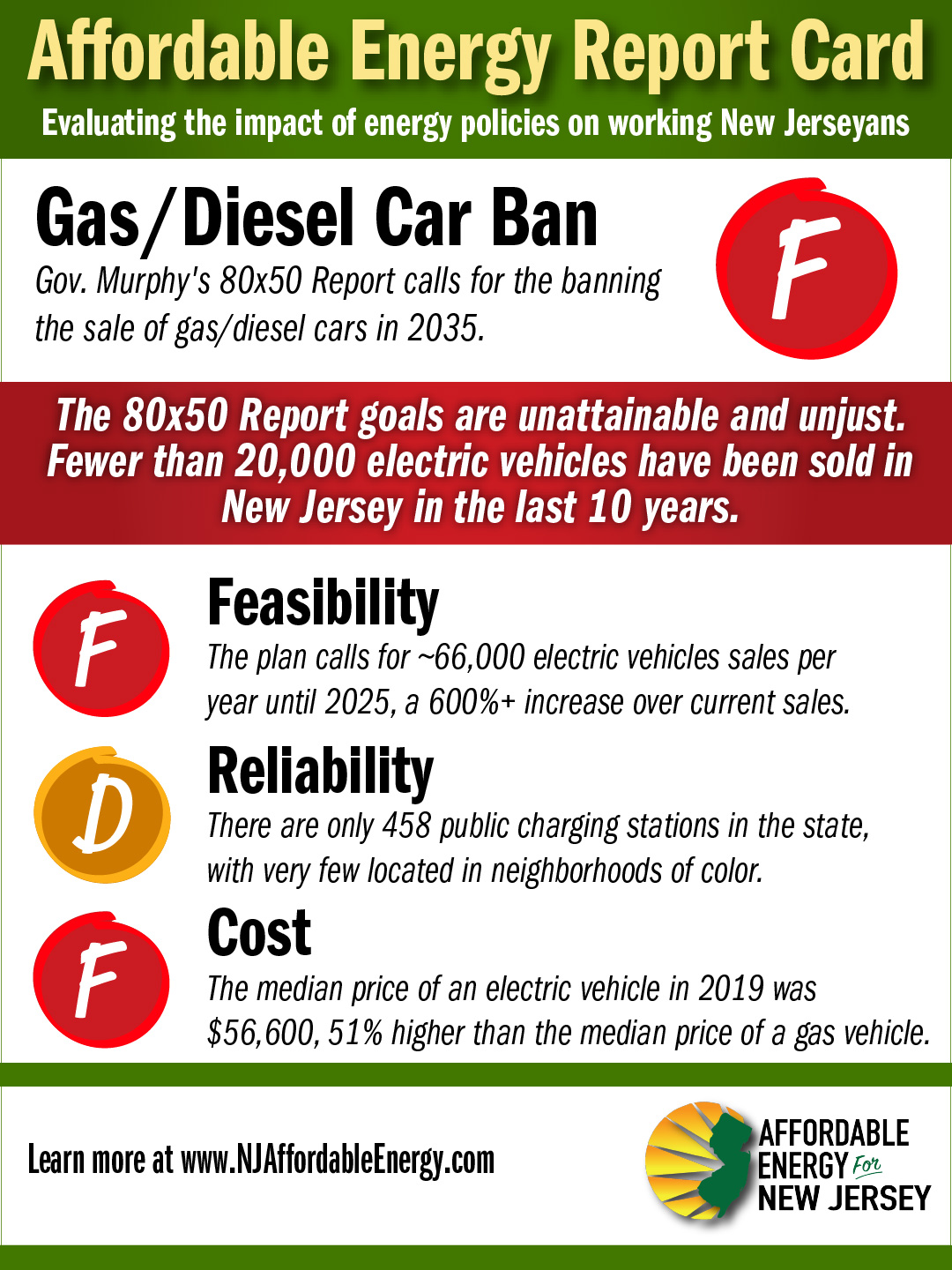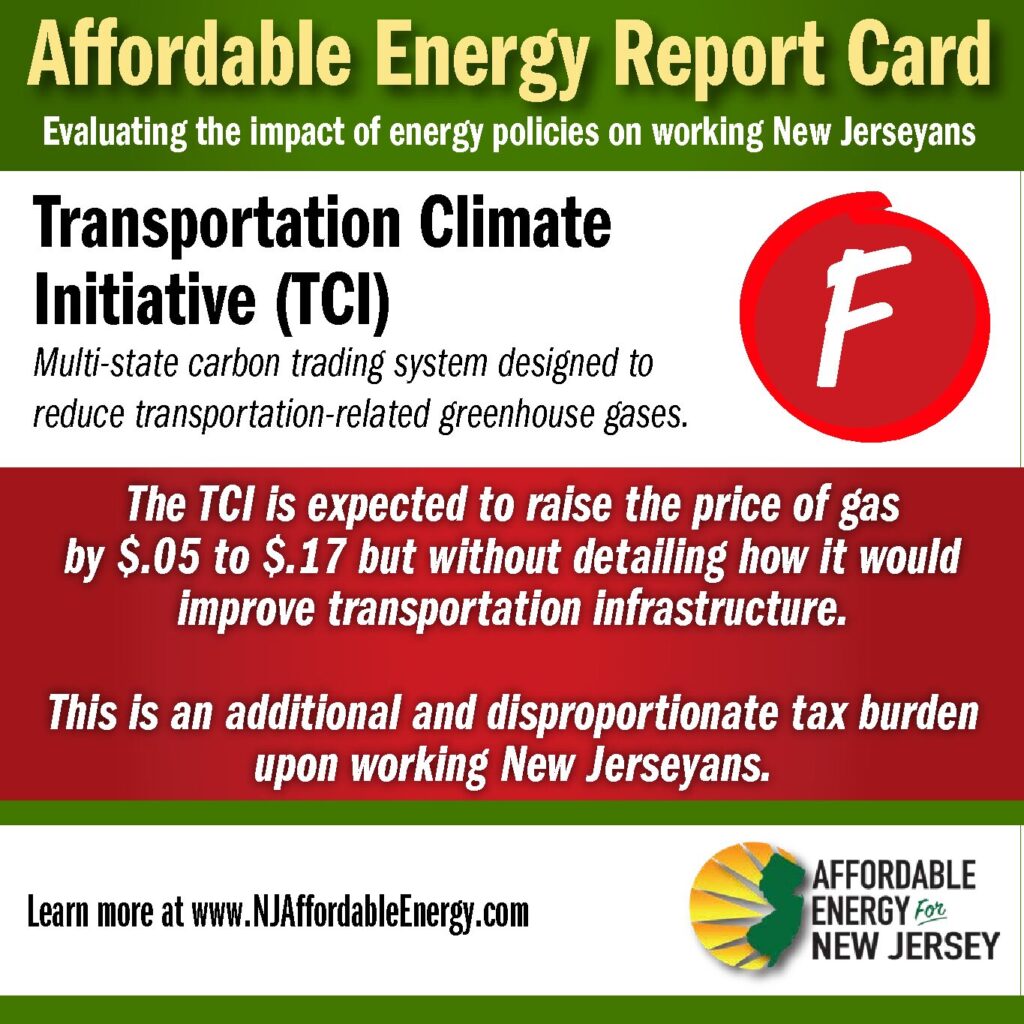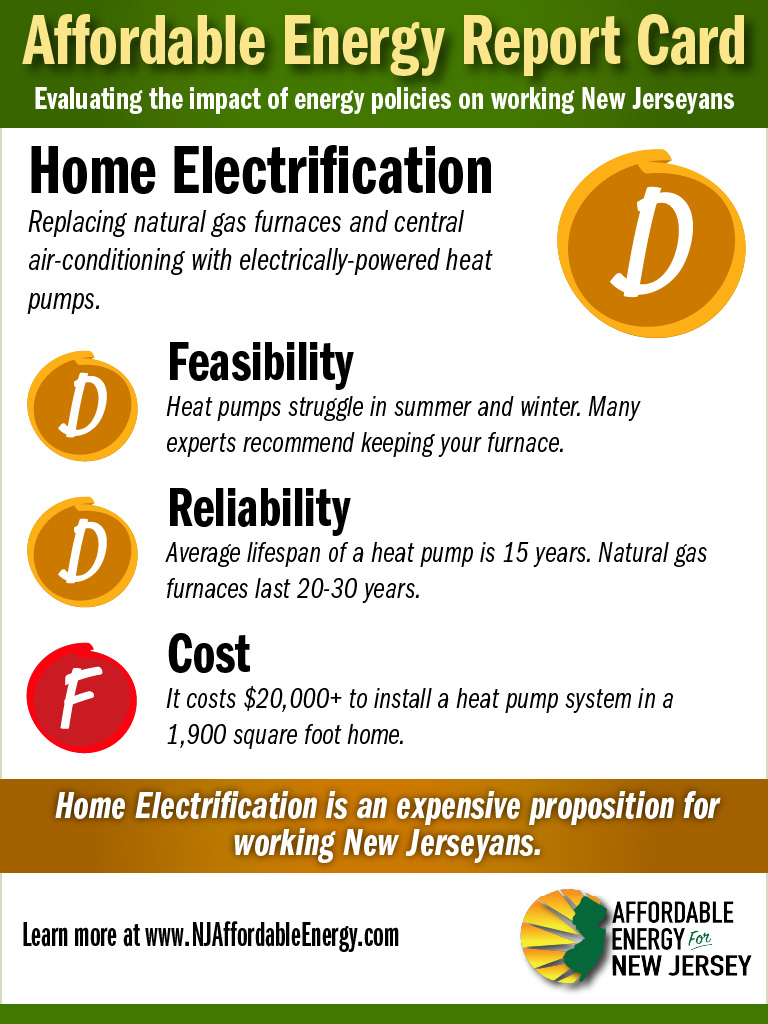The Affordable Energy For New Jersey Report Card
Evaluating energy policy on three simple criteria: Feasibility, Reliability and Cost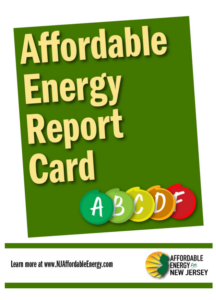 With over 141 miles of oceanfront and an aging water infrastructure that is vulnerable in large storms, New Jerseyans understand the existential threat of climate change to our state and the need to reduce our greenhouse gas emissions. Over the past ten years, we have already taken significant strides in reducing our state’s carbon footprint via our transition away from dirty coal to cleaner, affordable natural gas, increased use of renewables, and conservation measures.
With over 141 miles of oceanfront and an aging water infrastructure that is vulnerable in large storms, New Jerseyans understand the existential threat of climate change to our state and the need to reduce our greenhouse gas emissions. Over the past ten years, we have already taken significant strides in reducing our state’s carbon footprint via our transition away from dirty coal to cleaner, affordable natural gas, increased use of renewables, and conservation measures.
But as we make this transition to a greener future, we must ensure that energy policy is driven by facts and proven technologies and that the costs related to this transition are equitable and not unduly burdensome to working New Jerseyans.
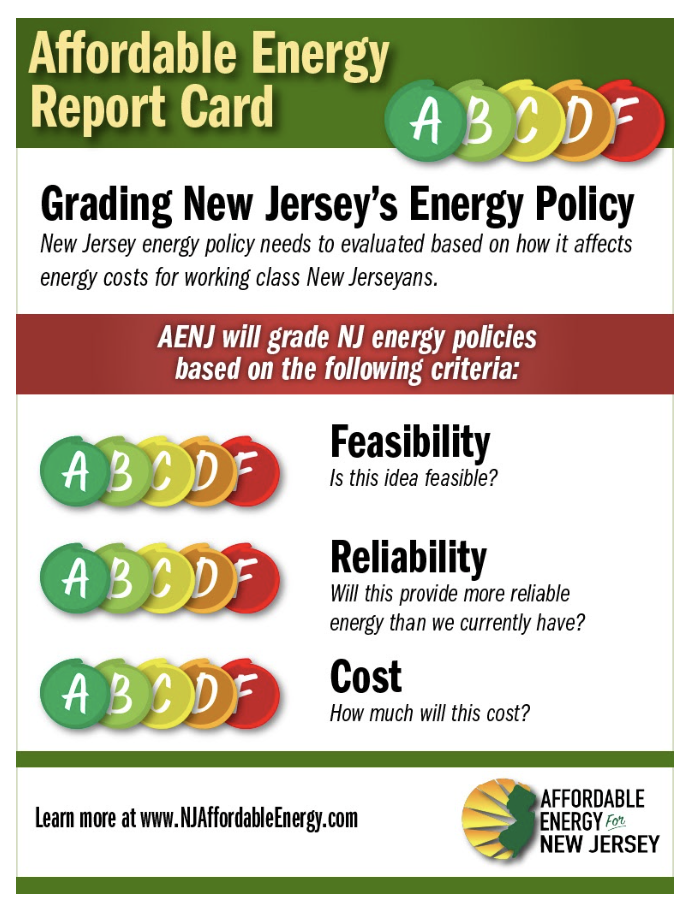 All too often, policies are inequitable (i.e., electric vehicle tax credits are all but inaccessible to working class apartment dwellers due to the high cost of electric vehicles and the lack of a public charging network), expensive (i.e., the 2050 Energy Master Plan gross underestimates the cost of replacing home gas heat with heat pumps), or not transparent in their costs (the cost estimate for the 2050 Energy Master Plan is nine months late).
All too often, policies are inequitable (i.e., electric vehicle tax credits are all but inaccessible to working class apartment dwellers due to the high cost of electric vehicles and the lack of a public charging network), expensive (i.e., the 2050 Energy Master Plan gross underestimates the cost of replacing home gas heat with heat pumps), or not transparent in their costs (the cost estimate for the 2050 Energy Master Plan is nine months late).
To combat this confusion and obfuscation, Affordable Energy for New Jersey Introduces the “Affordable Energy Report Card.” These report cards will evaluate energy policy on three simple criteria:
1. Is the idea feasible?
2. Will this provide more reliable energy than we currently have?
3. How much will this cost?
By answering these three simple questions, New Jerseyans can easily understand if energy policy is making meaningful progress towards reducing greenhouse gases while at the same time making the transition equitable and affordable for all.
